 No, he didn't invent this! Wednesday, July 11th is Bowdler’s Day, which commemorates the birth of Thomas Bowdler, born on this date in 1754, near Bath, England. At this point, you are probably asking, why should I care about this? Well, you have probably heard or read the term bowd·ler·ize/ˈbōdləˌrīz/, which is a verb which means to remove material that is considered improper or offensive from (a text or account), especially with the result that it becomes weaker or less, for example: "a bowdlerized version of the story." Yes, this English doctor, philanthropist and man of letters spawned a verb which is synonymous with censorship. How did that “happen?” 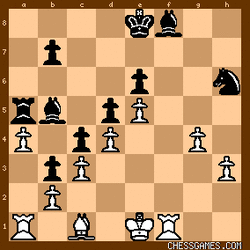 Now Bowdler was quite likely a man of numerous talents, a gentleman and a scholar, in the almighty words of Mick and Keith, “a man of wealth and taste.” He was a crusader for the cause of prison reform and apparently played a mean game of chess. He was in fact so clever a player that he won several matches against Frenchman François-André Danican Philidor, who was the Garry Kasparov of the 18th century. But what do the short encyclopedia entries note as the poor guy's dubious achievement? Redacting Shakespeare. (He also performed this service for Edward Gibbon’s History of the Decline and Fall of the Roman Empire and the Old Testament, with less famous results.)  Expletive deleted, as they said in the Watergate era Bowdler grew up listening to his father, a wealthy banker, reading aloud from the Bard’s greatest works. However, once he was old enough to read the texts on his own, he realized that Daddy had been leaving out the naughty bits. As a great admirer of Shakespeare’s plays, Bowdler felt it would be a public service to publish an edition for families in which the paterfamilias was not a sufficiently "circumspect and judicious reader" to accomplish this expurgation. In other words, to assist a dad who liked the naughty bits too much to remember to skip over ‘em when the young'ens were listening. To provide a solution to this problem and protect tender sensibilities, Bowdler did a little tampering with some important but, alas, offensive words and passages, a snip, snip here, a scratch-out there. Henrietta Maria Bowdler, his sister, may have assisted him. Bowdler claimed his goal was to provide texts "in which nothing is added to the original; but those words and expressions are omitted which cannot with propriety be read in a family." 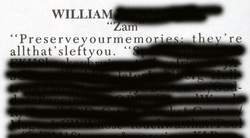 He didn't have Wite-Out. Bowdler explained his rationale thusly: “I acknowledge Shakespeare to be the world's greatest dramatic poet, but regret that no parent could place the uncorrected book in the hands of his daughter, and therefore I have prepared the Family Shakespeare… Many words and expressions occur which are of so indecent a nature as to render it highly desirable that they should be erased… If any word or expression is of such a nature that the first impression it excites is an impression of obscenity, that word ought not to be spoken nor written or printed ; and, if printed, it ought to be erased." (Preface to 1818 edition) 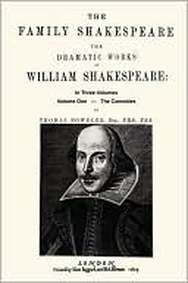 (Apparently Bowdler thought it was okay for boys to read the naughty bits!) He called his book The Family Shakspeare: In Ten Volumes; in which Nothing is Added to the Original Text; But Those Words and Expressions are Omitted which Cannot with Propriety be Read Aloud in a Family. The 1818 edition became extremely popular and helped make Shakespeare's plays known to a wide audience. Many critics of the 1800's, including the redoubtable Algernon Charles Swinburne praised Bowdler's edition for making Shakespeare's plays safe for women and children. 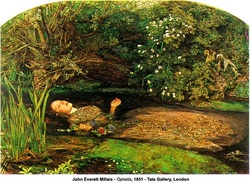 Some examples of his redactions and expurgations include: Ophelia's death in Hamlet is referred to as an accidental drowning, not a possible suicide. (Guess she was just out rock-hunting and just happened to stow a bunch of her most interesting finds in her pockets before she, alas, fell into the stream.) Lady Macbeth's "Out, Damned spot" is changed to "Out, Crimson spot." (Perfect cheer for any teams playing Alabama or Harvard!) Doll Tearsheet (a woman of ill-repute (how’s that for bowdlerizing?) is completely written out of Henry IV, Part 1. In Romeo and Juliet, instead of saying "the bawdy hand of the dial is now upon the prick of noon,” Mercutio quips "the hand of the dial is now upon the point of noon" (not half as quipish) and Juliet's line "Spread thy close curtain, love performing night" is changed to "... and come civil night." (Oh please!) And there's plenty more where that came from...  Now, to be honest, most people have their own acceptable standards of censorship where hate speech, racism, pornography, violence and the sensibilities of children intersect. And Shakespeare is regularly expurgated by theatre and film directors as they cut and move his dialogue around to fit their concepts of design and performance. And if you are a parent, when doing the nightly read aloud, you know that you occasionally do skip over passages or substitute words or phrases, whether due to censorship or the fact that you're dog-tired and want to get through the chapter before you fall asleep face first in the book. So why do we object to Bowdler and use his name in a perjorative manner? Is it because we think he was being dishonest? Do we wonder how he could dare take a scissors to the Bard? 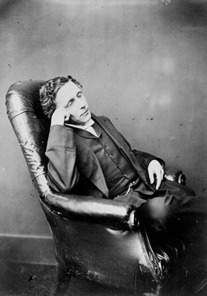 Carroll dreams of editing the Bard During the 18th and 19th centuries, there were many other more or less expurgated versions of the plays. Lewis Carroll even contemplated putting together his own version, which never came to fruition, called The Girl's Own Shakespeare: "I have a dream of Bowdlerising Bowdler, i.e., of editing a Shakespeare which shall be absolutely fit for girls" (from "Alice Reads Shakespeare: Charles Dodgson and the Girl's Shakespeare Project" by Georgianna Ziegler in Reimagining Shakespeare for Children and Young Adults). Of course, we all know about LC and his "sank heaven for leetle girls" thing.  In the man cave: no women allowed So, go ahead, to celebrate Bowdler's birthday, read an unexpurgated version of a Shakespeare play. If you are looking for naughty bits and laughs, Love’s Labour’s Lost is probably the bawdiest of the Bard’s comedies, with a simple plot: Three young men vow to devote themselves to studying and avoid any female contact for three years. (Think Judd Apatow, but a lot more wit and a lot less outright vulgarity) Predictably, none of them are able to keep away from temptation for any length of time. In a similar vein is The Merry Wives of Windsor, in which a rotund and foolish knight named Falstaff is consumed with desire for two hot housewives who decide to play tricks on him. For violence, any of the tragedies might suit your fancy and Romeo and Juliet has enough sex and violence for a hard R from the MPAA's raters! Or you could choose to read E.B. White (Charlotte's Web, Stuart Little, etc.) or Patricia Polacco (The Keeping Quilt, Thunder Cake, Pink and Say or any number of other picture books) since they were also born on July 11. I don't believe any of their books have been bowdlerized, as of yet. (Although I predict that somebody will one day make a movie version of Charlotte's Web in which the spider lives! Don't want to traumatize the kiddies!)
0 Comments
Leave a Reply. |
AuthorTo find out more about me, click on the Not Your Average Jo tab. Archives
February 2024
Categories
All
|
 RSS Feed
RSS Feed